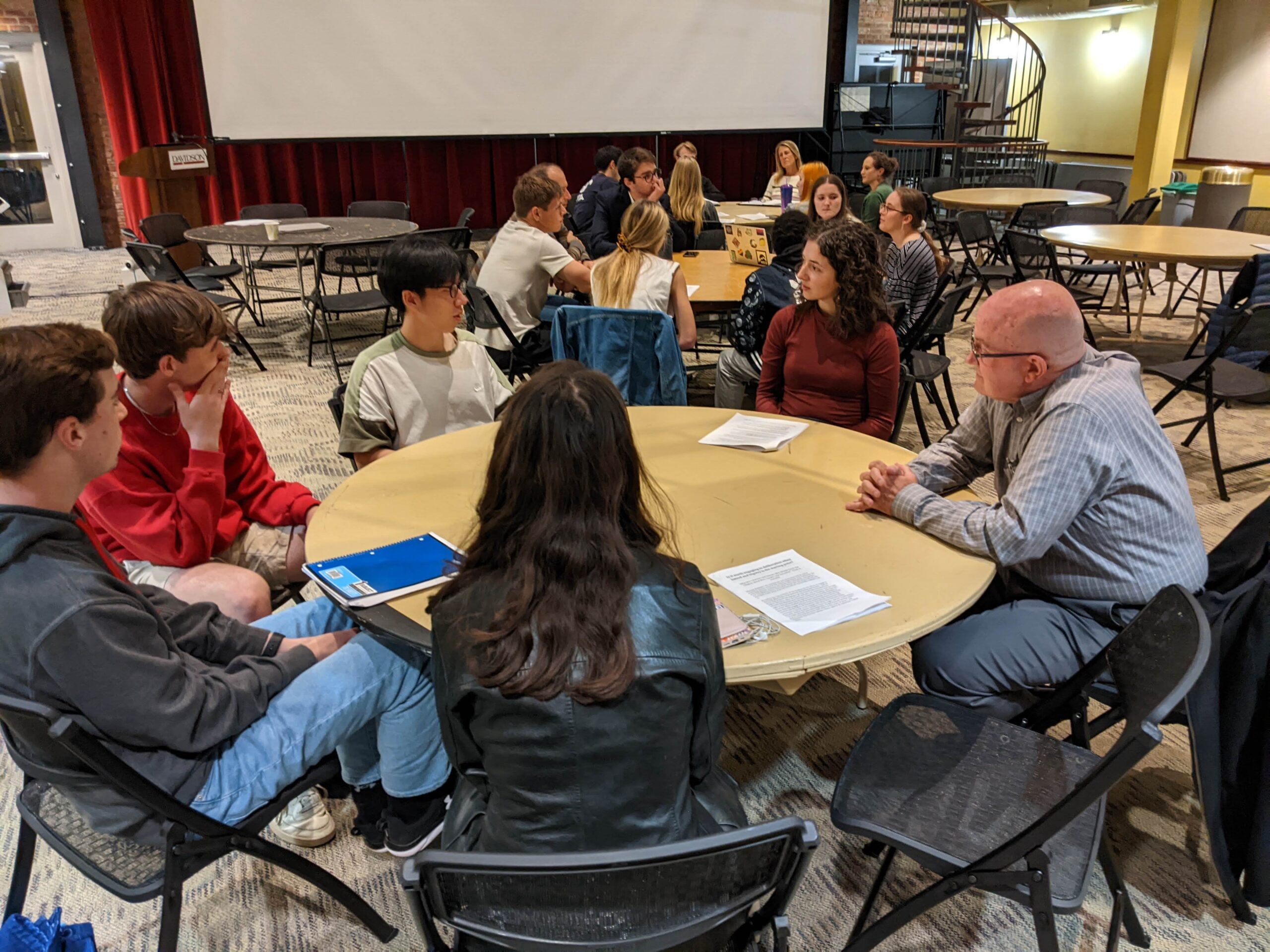
By Laegan Smith ’24 (DCI Fellow)
Before coming to Davidson and joining the Deliberative Citizenship Initiative, my experience with deliberation was very limited. Like many people, I was hesitant to assert my beliefs for fear of discomfort, conflict, or judgment and careful to avoid conversation around politics or controversial issues with those who I knew disagreed with me. In my prior experience, those interactions often turned to debate in which the goal was not to listen and learn but to play attack and defense with the goal of being “right.” They nearly always ended in someone feeling hurt or disrespected. Though I thoroughly enjoy engaging in conversation about complex topics, I had no interest in doing so in such a hostile and unwelcoming environment.
As I became involved in the DCI, I learned about what distinguishes deliberation from debate. The goal is not to win or be right, but to come away with a greater understanding of both the complexities of the topic and of alternative perspectives. It is meant to be a welcoming and respectful space in which people can express their views without fear of dismissal or ridicule.
While this seems straightforward in theory, my first DCI event tested how well I could maintain such a space as a facilitator. The topic at hand was very personal to me and I was reluctant to listen to a speaker with whom I disagreed so strongly. Prior to the forum, I was quick to dismiss her views as bigotry. But as she explained the intricacies of her perspective, I gained a new lens through which to look at the issue. Though I did not agree with her foundational beliefs, her discussion of her perspective helped me to understand the reasoning behind why she thought that way. I gained empathy for her point of view that I did not have before. I realized that my immediate dismissal of her was due to my assumption about what I thought she would say rather than based on her actual words, and that I had not previously offered her perspective the same respect as my own.
Before my experience with deliberation, I had not realized how much I subconsciously dismissed views different from mine. I had not realized how much I assumed what people’s views were instead of actively listening to what they had to say. It has since opened my eyes to the extraordinary amount of nuance that is present in every issue. There are not solely two sides in any given issue, and the sides are not inherently in opposition. Someone’s view on one particular issue should not lead us to make assumptions about their other views or about their character.
With the current state of rapidly increasing polarization and gridlock, deliberation is especially important. We cannot continue to debate to win, nor can we continue to leave controversial topics out of the conversation. In order to make progress, we must work towards bridging the political divide by engaging in openminded, respectful conversation that fosters mutual understanding and empathy.
